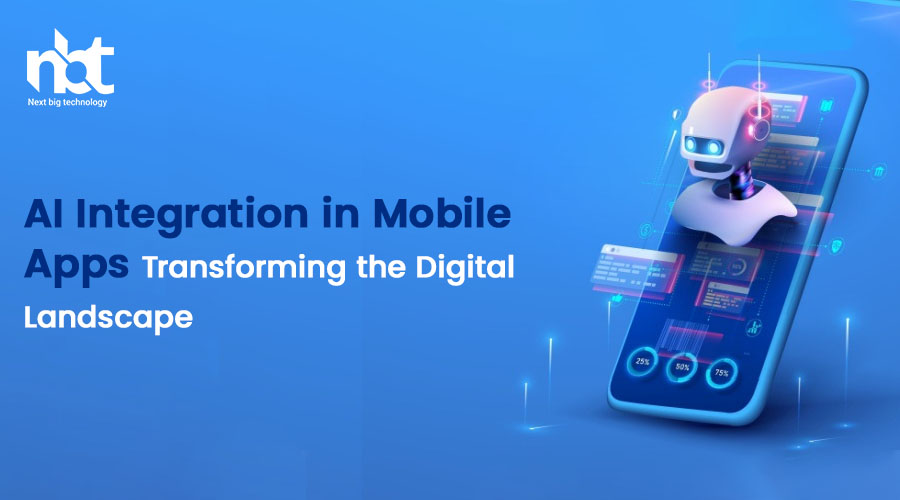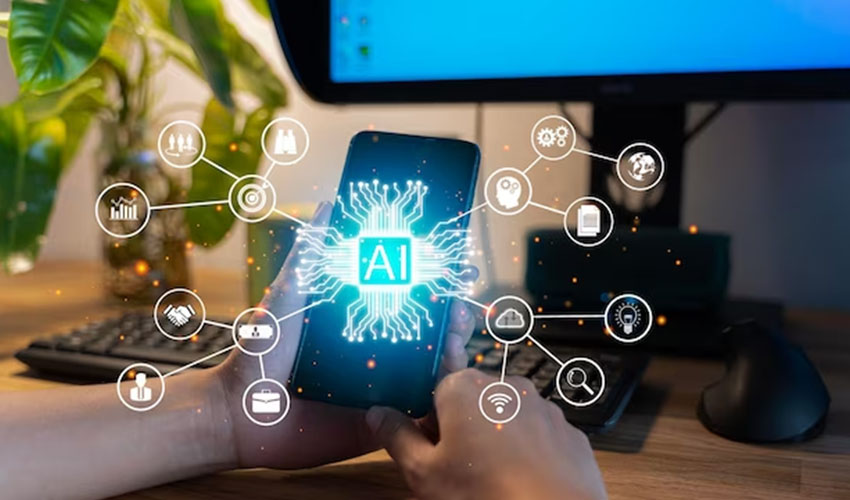Table of Contents
Introduction
In the rapidly evolving landscape of mobile applications, the integration of artificial intelligence (AI) has emerged as a game-changer. AI, with its ability to mimic human intelligence, has revolutionized the way we interact with and use mobile apps. This article explores the significance, benefits, challenges, and future trends of AI integration in mobile apps.
Benefits of AI Integration in Mobile Apps
Enhanced User Experience AI-driven features such as predictive typing, smart recommendations, and personalized content delivery enhance user satisfaction and engagement.
Personalization Features Tailoring app experiences based on user preferences and behavior, AI ensures a personalized journey for each user.
Improved Efficiency Automation of repetitive tasks, thanks to machine learning algorithms, leads to increased operational efficiency in mobile apps.
Predictive Analysis AI enables mobile apps to predict user behavior, helping in proactively addressing user needs and preferences.
Popular AI Technologies in Mobile Apps
Natural Language Processing (NLP) NLP enables mobile apps to understand and respond to user commands and queries in a more human-like manner.
Machine Learning (ML) ML algorithms power recommendation systems, making app interactions more intuitive and tailored to individual users.
Computer Vision Facial recognition and image analysis, driven by computer vision, enhance security and user authentication in mobile apps.
Virtual Assistants AI-powered virtual assistants like Siri and Google Assistant provide hands-free and voice-activated functionalities.
Challenges in AI Integration
Data Security Concerns As mobile apps rely on vast amounts of user data, ensuring robust security measures is paramount to prevent data breaches.
Integration Complexity Integrating AI into existing mobile apps can be complex, requiring careful planning and execution.
User Acceptance User skepticism and resistance to change pose challenges in widespread acceptance of AI-driven features.
Successful Case Studies
AI in Social Media Apps Platforms like Facebook and Instagram leverage AI to curate personalized content feeds and targeted advertisements.
AI-driven E-commerce Platforms Recommendation engines in e-commerce apps utilize AI to suggest products, increasing user engagement and sales.
Health and Fitness Apps with AI Apps tracking health metrics use AI to provide personalized fitness plans and health recommendations.
Future Trends in AI Integration
Advancements in AI Technology Continuous advancements in AI, including better algorithms and processing power, will fuel more sophisticated applications.
Integration in Emerging Industries AI is poised to make a significant impact in industries like education, finance, and entertainment in the coming years.
How to Implement AI in Mobile Apps
Understanding App Requirements Thoroughly understanding the specific needs of the app is crucial for successful AI integration.
Choosing the Right AI Technology Selecting the appropriate AI technology based on the app’s objectives is key to effective implementation.
Collaboration with AI Experts Engaging with AI experts ensures a seamless integration process and maximizes the benefits of AI.
Impact on App Development Industry
Evolving Skill Sets for Developers The demand for developers with AI expertise is on the rise, prompting a shift in skill requirements within the app development industry.
Rising Demand for AI Integration Services Specialized service providers offering AI integration services are witnessing increased demand as businesses recognize the value of AI.
User Privacy Concerns
Balancing Personalization and Privacy Striking a balance between providing personalized experiences and respecting user privacy is a critical consideration.
Regulatory Compliance Adhering to data protection regulations is essential to build trust and ensure legal compliance in AI-driven mobile apps.
AI Integration Success Checklist
Robust Testing Protocols Thorough testing of AI features is crucial to identify and rectify potential issues before the app reaches users.
Continuous Monitoring and Updates Regular updates and monitoring of AI algorithms ensure ongoing optimization and responsiveness.
Realizing the Full Potential
Ongoing Innovation in AI Continued investment in AI research and development is necessary to unlock new possibilities for mobile apps.
User Feedback and Iterative Improvements Actively seeking and incorporating user feedback ensures that AI features evolve to meet changing user needs.
Conclusion
In conclusion, the integration of AI in mobile apps represents a transformative phase in the digital era. From enhancing user experiences to driving efficiency and personalization, AI’s impact is profound. As industries evolve, the symbiotic relationship between AI and mobile apps is set to shape the future of digital interactions.
Thanks for reading our post “AI Integration in Mobile Apps: Transforming the Digital Landscape”. Please connect with us to know more about “AI Integration in Mobile Apps.














